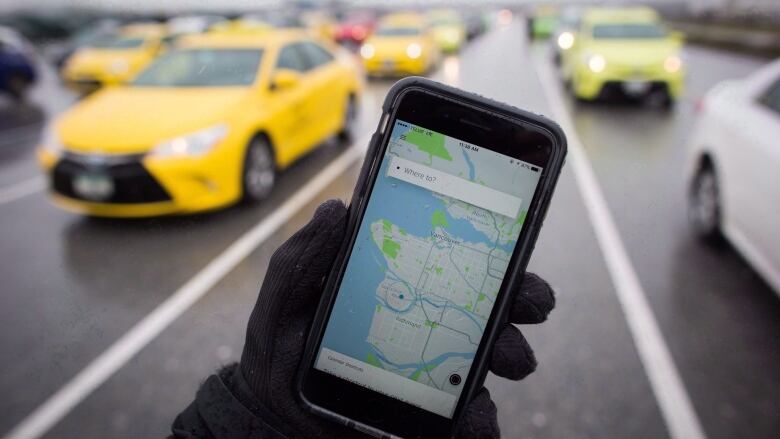Richmond struggling to shut down unregulated ride-hailing services
Fines for illegal ride-hailing services are seen as cost of doing business, complains mayor

While the province considers permittingcompanies such asUber and Lyft in B.C., a number of ride-hailing services are already operating illegally in the Lower Mainland and municipalities are struggling to stop them.
Earlier this week, the B.C. Taxi Association told a committee of MLAs that several of those ride sharing companies are operating in Richmond to the detriment of the taxi-driving business there.
- Uber is coming to B.C., province announces
- Uber and taxi industry give competing visions of the future to B.C. MLAs
At least seven such unregulated companies currently exist across Metro Vancouver, according the Passenger Transportation Branch.
Malcolm Brodie, mayor of Richmond, said the appearance of illegal ride-hailing services in his city is concerning but difficult to deal with.
"They are very much under the radar," he said. "They are operating in a way that they don't want to be detected and they certainly don't want any enforcement proceedings to go against them."
It's up to the provincial government to set guidelines and regulations, he told CBC's host of The Early Edition Stephen Quinn.
"For the city, the only way we can regulate the situation at all is to insist that they have a business licence," he said. "You can fine the drivers to the extent that you can get to them but it's a cost of doing business, they just carry right on."
Drivers operating unlicensed commercial transit can face fines of $1,150 per day.
'No storefront'
A big part of the problem is uncovering the operations, Brodie said.
"They don't particularly advertise their services," he said. "It's all word of mouth and I am told that many of them will only respond to people who speak Chinese or another language. So it makes it difficult in terms of trying to address the situation."
Richmond faced a somewhat similar situation last year shutting down an unregulated marijuana dispensary, Brodie said.
The difference this time is that there's no physical address for the operations, which makes finding and stopping the companies more difficult, he said.
"It took quite a long time for us to shut [the dispensary] down," he said. "We want to do the same thing with these illegal operations but there is no storefront."
With files from The Early Edition.












_(720p).jpg)


 OFFICIAL HD MUSIC VIDEO.jpg)
.jpg)



























































































